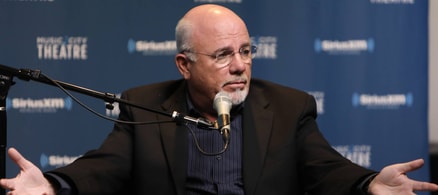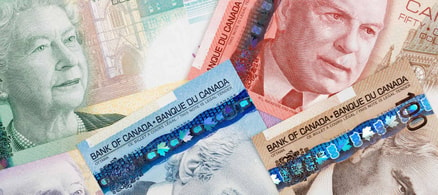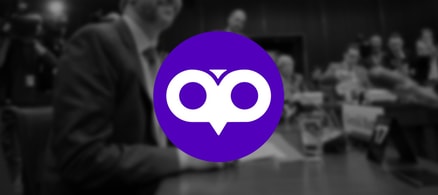An emergency fund is essential
Before quitting my full-time job, I topped up my emergency fund to cover six months’ expenses. If I was in serious trouble, I figured I could cut some of my discretionary (non-essential) expenses and make my emergency fund last an entire year.
The fund is crucial for unexpected fluctuations in income, which are more likely to pop up when you are self-employed.
For example, the onset of the COVID-19 pandemic led to my income dropping by 75%. My clients were cutting expenses, and contractors were the first to go. Those first six months were scary since I barely had any work. However, I was never too stressed out since I had my emergency fund. It carried me until I was able to pick myself back up.
Maximize Your Tax Refund with TurboTax Canada!
Simplify tax season with this user-friendly software. Get step-by-step guidance, maximize deductions, and file with confidence. Trusted by millions, TurboTax Canada ensures accuracy and peace of mind. Start your taxes today and get the refund you deserve
Get the tax refund you deservePut aside money for taxes
When I was a full-time employee, taxes were deducted from my paycheque by my employer. As soon as I started freelancing, I knew that taxes owed wouldn’t be deducted from my paycheque. When you’re a freelancer or small business owner, you’re responsible for paying income taxes directly to the CRA.
As a result, I set aside 25% of each paycheque and put it into a high-interest savings account. Since my tax bill wouldn’t be due until April of the following year, I figured I could make a little bit of interest on my taxable portion before I had to file.
While setting aside some money for taxes is never a bad idea, you’ll want to pay close attention to your tax bracket: as your income increases, you’ll owe more taxes. Most Canadians pay 15% on the first $50,197 of taxable income, and 20.5% on the portion between $50,197 and $100,392. The percentage of taxes will only increase as you make more, culminating in 33% for taxable income over $221,708.
These federal numbers also don’t factor in additional provincial tax obligations, which can be calculated with an online service such as TurboTax. That means you’ll want to save even more money for taxes if you’ve had a good year. The last thing you want is to be hit with a massive tax bill you weren’t expecting.
It’s worth mentioning that once you owe more than $3,000 ($1,800 in Quebec) in taxes, you’ll be required to pay your taxes quarterly the following year. You’ll be taxed for unpaid installments, so budget accordingly, especially if your income fluctuates throughout the year.
Create a budget
Start by tracking your expenses and income for two to three months. Generally, your costs will be fixed each month. That said, a few random expenses will come up from time to time. As for your income, take three months and average it out.
You want to have a relatively accurate idea of what your money expenses and income is. With those numbers in mind, you’ll know the bare minimum income you need each month to keep afloat. Don’t forget, you can dip into your emergency fund if you ever have a down month.
Having a budget also helps you plan your business. For example, if you start to make a more consistent income, you can decide whether you want to save that extra cash or scale up your business. You could also project any upcoming capital expenses, such as a new laptop or equipment, and budget accordingly.
Grow Your Savings Effortlessly with Moka
Automate your savings with every purchase and watch your money multiply. Moka rounds up your transactions and invests the spare change. Start building wealth effortlessly today. Join thousands of Canadians embracing financial freedom with Moka
Sign up nowGet to know your expenses
Freelancers, self-employed individuals, and small business owners can claim business expenses that will help reduce your overall tax burden.
Some business expenses you can claim include:
- Home office
- Telephone, mobile phone, and internet
- Advertising
- Office supplies
- Legal, account, and professional fees
- Utility costs related to your business
- Delivery or shipping costs
- Meals and entertainment
- Vehicle expenses (gas, insurance, repairs, parking)
Basically, you can expense just about anything related to your business, but not any personal expenses. For example, let’s say you use your cellphone and home internet for work purposes half the time. That means you could claim 50% of the bill as a business expense.
Seek help when needed
For many people, their first instinct as freelancers is to take everything on themselves. While this may make sense for your duties, money management is not always so simple. You’ll likely need tools and/or people to help you stay on track.
First, you’ll want to develop an accounting system to keep your expenses and income in check. Some people prefer to track things manually with spreadsheets, but using software such as QuickBooks or FreshBooks might be easier.
When it comes to paying your taxes, you have many more options. TurboTax has software that’s designed specifically for self-employed individuals. This will allow you to maximize your tax return. If you need a little extra help, they have additional options such as Assist & Review and Full Service. This will give you access to a tax professional that can review or file your taxes on your behalf.
Alternatively, employing the services of an accountant can also help your business since they’ll be able to file your taxes and answer any tax questions you may have.
Don’t expect things to go smoothly
It’s unrealistic to think things will go according to plan once you become a freelancer or small business owner. Having a steady paycheque while working set hours will be a thing of the past. The reality is that your income will fluctuate, and you’ll work longer and harder than you ever have before.
That said, despite the struggles, you’ll have an opportunity to take complete control of your finances and grow your net worth. By planning and focusing on what you do best, you can grow your own business. You’ll have your doubters, but being self-employed comes with benefits that many full-time roles can’t provide.
Sponsored
Trade Smarter, Today
With CIBC Investor's Edge, kick-start your portfolio with 100 free trades and up to $4,500 cash back.







